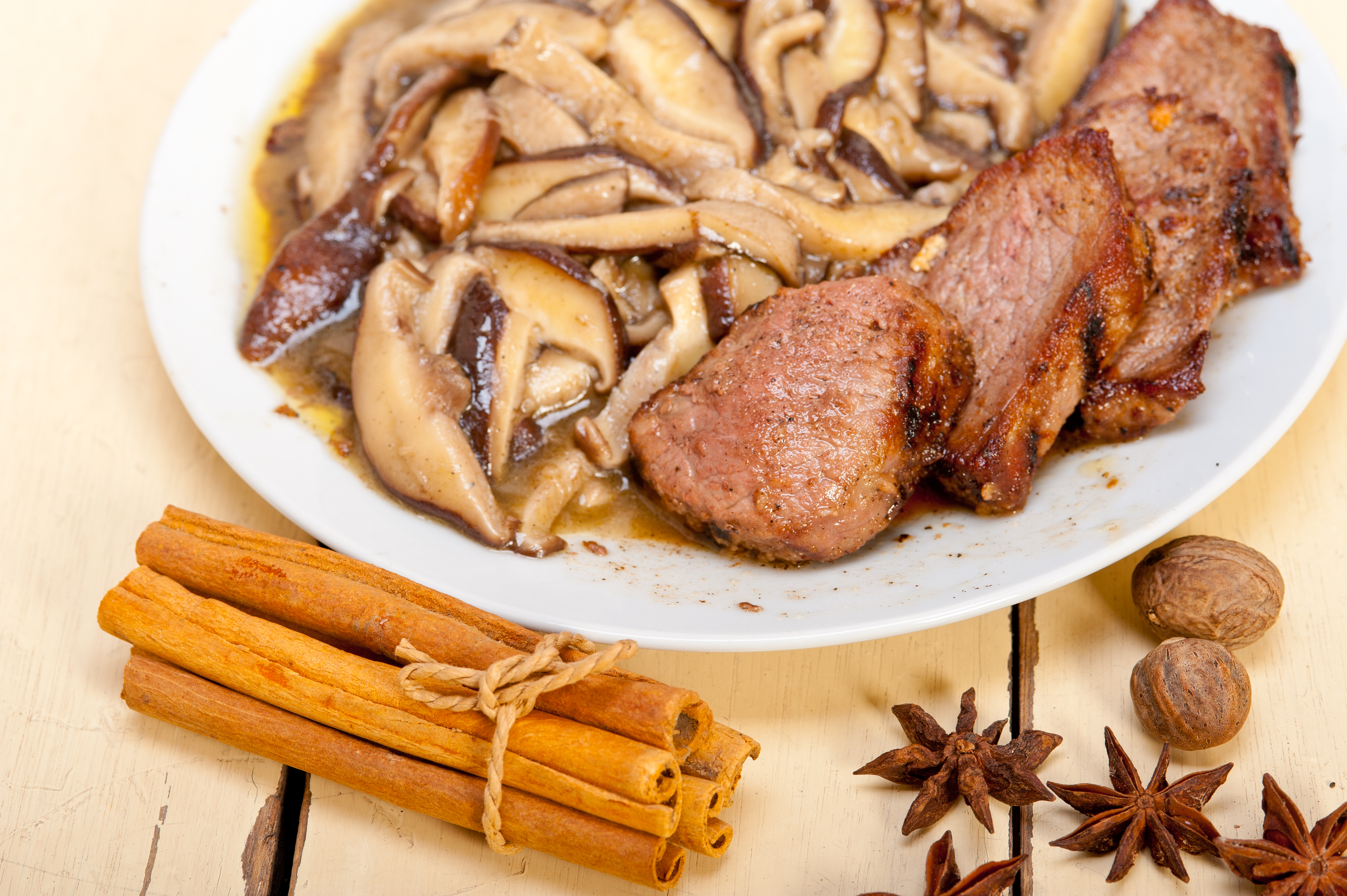As I mentioned in last month’s column, I want to talk about jibie for this issue. The term is borrowed from the French word referring to wild game. For most of Japan the official hunting season is a three-month period from 11/15 to 2/15.
Back in the day, the French considered jibie a luxury generally only consumed by the upper class and aristocrats. Game was commonly eaten in Japan long ago, but meat consumption declined with the introduction of Buddhism. Meat regained popularity following the Meiji era, though it was mostly farm-raised meats. Game stayed predominantly in the shadows. As technology and distribution methods have advanced and food culture has expanded as a whole, jibie has now become a gourmet item at restaurants in Japan.
Game meats that can be found relatively easily in Japan are pheasant, duck, wild boar, deer, bear, and rabbit. Rarities include wild crows, civets, and a few others. Jibie (as the name implies) has a peculiar smell and gamey flavor that people tended to avoid in the past. But fresh, quality meats that are properly obtained can be turned into delicious dishes. It’s important for hunters to kill the animal in one shot, then drain the blood and chill it expeditiously. If the animal is allowed to run around for a time before expiring, lactic acid builds up in its body due to extreme stress, leading to poor tasting meat. With modern know-how and improvements to processing equipment, obtaining high-quality game meat is not a problem. Jibie is savory in flavor and high in protein and calories, so it is popular among gourmet consumers. The next three months will see a sharp increase in jibie on menus.
At Green we have venison on our menu. We only use the best suppliers, so it is fresh and has no odd aromatics. Charcoal-grilling adds a smoky flavor to the meat on the fringe, while the middle becomes juicy and flavorful from infrared radiation. If you come across jibie cuisine on the Green menu, by all means, give it a try!


